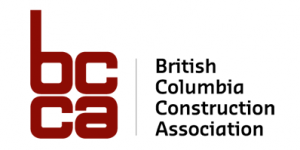Myths & Realities
The Construction Prompt Payment Act (CPPA) is on the path to soon becoming law in British Columbia. The BC Construction Association (BCCA) has prepared this Myths and Realities document to address common misconceptions about prompt payment and adjudication legislation.
BCCA has prepared an extensive FAQ resource providing more detailed information on the legislation.
Myth: Prompt payment will add delays or red tape to construction projects.
Reality: No, it won’t. Prompt payment is designed to make projects run more smoothly, not slower. By creating clear, consistent timelines and a defined process for handling payment disputes, it provides certainty to a project’s entire supply chain. With adjudication as a fast, cost-effective alternative to litigation, disputes are resolved quickly and projects keep moving. It has already been in force in other provinces, and construction continues.
Myth: Prompt payment isn’t going to change anything.
Reality: Prompt payment changes everything about how money flows in construction. It requires owners to pay contractors within 28 days of a proper invoice, contractors to pay subcontractors within 7 days, and payments to keep moving down the supply chain. It eliminates the ability to sit on funds or rely on “paid-when-paid” clauses without notice or cause, and also introduces adjudication: a fast, cost-effective process to resolve disputes so projects are not stalled.
But it will only work if all parties understand and follow it, speak up when another party does not, and make use of adjudication when payment disputes arise.
Myth: Industry wasn’t consulted in the development of this legislation.
Reality: Industry has been calling for prompt payment reform in BC for decades, and in our opinion, consultation has been extensive:
In fall 2023, a working group was formed to provide feedback to the Ministry of the Attorney General on the potential introduction of prompt payment legislation. The group met over six months, with many industry stakeholders invited to participate; some chose to remain engaged, while others left the process.
In summer 2025, a group of industry experts signed NDAs to review draft legislation representing trade contractors, general contractors, legal experts, labour and associations including BCCA, ECABC, RCABC, MCABC, GCAC, the Surety Association of Canada, and the BC Building Trades. This rigorous review ensured feedback reflected a broad cross-section of industry realities.
While not all feedback was accepted and incorporated, we are confident that industry voices and perspectives were considered throughout the drafting process. However, we continue to emphasize the importance of collaboration between government, industry, and other relevant stakeholders, and remain committed to our advocacy regarding the drafting of clear regulations, prompt enactment and modernization of the Builders Lien Act.
Myth: Prompt payment restricts how builders structure their projects and forces everyone to invoice monthly.
Reality: The legislation does require monthly invoicing by the head contractor, unless the contract specifies otherwise. Parties have freedom to contract, so a proper invoice may be tied to milestones or other agreed triggers, for example invoicing every three months or when a prefabricated component is delivered. The key is that once a proper invoice is required to be submitted, the legislation takes effect and the payment timelines under the law begin to run.
Myth: This legislation unfairly advantages contractors over owners.
Reality: The legislation is designed to keep money flowing fairly through the entire construction supply chain, not to tip the scales toward any one party. It sets out clear timelines and processes that apply equally to owners, contractors, and trades, ensuring accountability at every level. Owners have the right to issue notices of non-payment and to leverage adjudication when disputes arise. These tools ensure owners remain protected while reducing the risk of disputes that can stall or derail projects, outcomes owners want to avoid.
Myth: The timelines are too fast, too hard to adjust to, and will create an administrative burden.
Reality: The timelines in this legislation are consistent with those already in place in other provinces, where construction continues without disruption. Yes, it will require changes in processes and systems, but the industry has successfully adapted elsewhere … and so will BC. With education and support, the transition will bring lasting benefits by reducing disputes and keeping projects moving, and while it requires a shift in thinking and processes, there will be time to adapt before the legislation is enforced.
Myth: This is not the right time for prompt payment, with so much economic uncertainty.
Reality: This is exactly the right time. Construction contributes more than $29 billion annually to BC’s economy and employs over 260,000 British Columbians. Payment certainty helps businesses remain resilient and grow, protecting jobs and strengthening the industry’s ability to deliver housing, infrastructure, and trade-enabling projects. A fair payment system builds a healthier construction industry, which in turn supports a stronger provincial economy.
Myth: Prompt payment legislation is only for large owners and contractors and does not help homeowners.
Reality: While homeowners are not BCCA’s primary sector, our experience shows this legislation will help them too. We regularly hear from homeowners facing payment disputes on their projects as they seek to build or renovate their homes. Prompt payment can give them an efficient, structured way to address disputes with their contractor through adjudication, instead of being left in limbo or facing costly and drawn-out legal battles in the courts.







